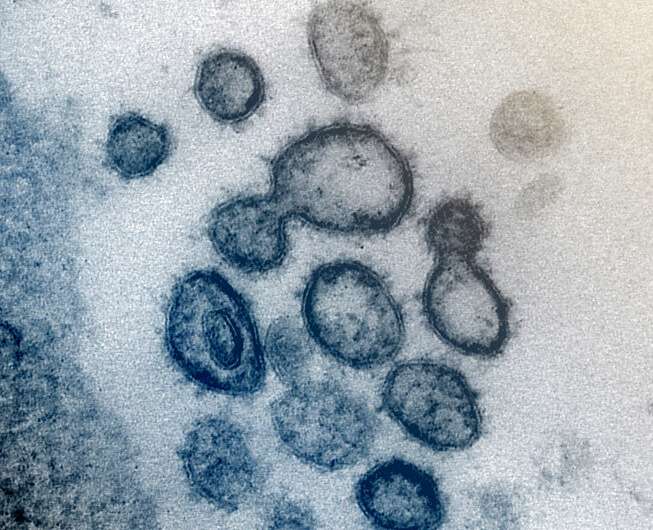This transmission electron microscope image shows SARS-CoV-2 -- also known as 2019-nCoV, the virus that causes COVID-19 -- isolated from a patient in the US. Virus particles are shown emerging from the surface of cells cultured in the lab. The spikes on the outer edge of the virus particles give coronaviruses their name, crown-like. Credit: NIAID-RML
Several tests have been developed for detecting the genetic material of the SARS-CoV-2 coronavirus that causes COVID-19, but these generally only allow detection of the virus during acute infection. Antibody, or serological, tests are urgently needed to determine the real rate of infection, to understand individuals' antibody responses to the virus, and to identify people who are potentially immune to re-infection. As described in a paper published in Current Protocols in Microbiology, investigators have now developed such a test.
The published article provides a step-by-step protocol with enough detail for other researchers to replicate in their laboratories. The protocol involves expressing and purifying segments of a key SARS-CoV-2 protein that are then used in blood tests for the presence of antiviral antibodies.
"Serological assays can be used to identify individuals who were infected (including severe, mild, and asymptomatic cases) and who are now potentially immune, which means that they are unlikely to transmit the virus to others," the authors wrote. "As an example, healthcare workers who are immune could potentially care for COVID19 patients with minimal risk to themselves, their colleagues, and other patients."
More information: Daniel Stadlbauer et al, SARS‐CoV‐2 Seroconversion in Humans: A Detailed Protocol for a Serological Assay, Antigen Production, and Test Setup, Current Protocols in Microbiology (2020). DOI: 10.1002/cpmc.100
Provided by Wiley
























